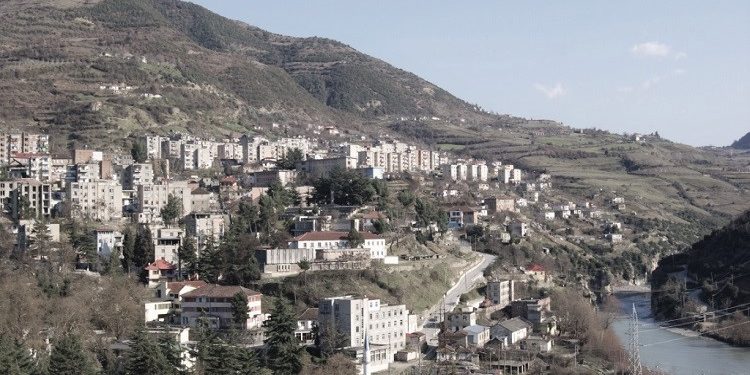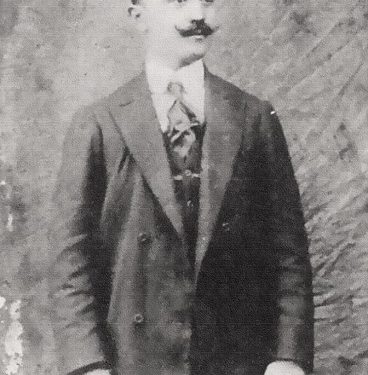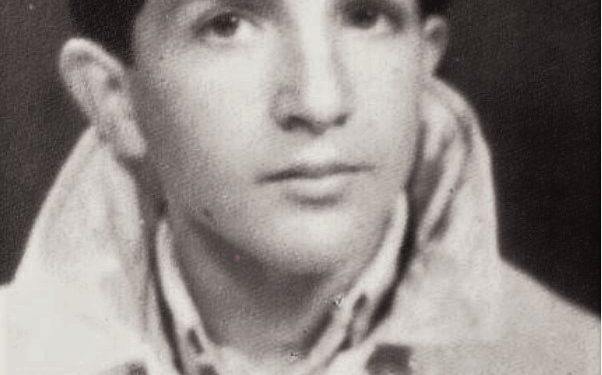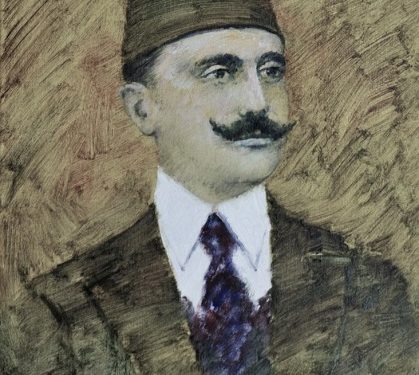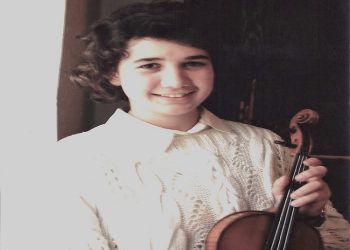By Fatjon Kaloçi
The first part
Memorie.al/ Various data, sometimes even contradictory, come about the genealogy of the Bejler family of Koprêncka, who bear the surname Mançe. From oral tradition, and then from historical documents, it is specified that this family from the middle of the 19th century, until the 30s of the 20th century, owned thousands of hectares of farmland, meadows, pastures, mostly summer and forests. These lands have been in; Gostënckë, Leshnje, Vlushë, Kapinovë, Krastë (Bërsakë), Potom, Çorovodë, the summer pastures of Ostrovica, Shtylla, Shera, Qafa e Marta, Gorrul, Bulgarec of Korça, as well as the lands of the village of Cërunjë in Gramsh. There are different versions of how this fief was built, one of which is the connection with Ali Pasha Tepelena and the loyalty of the pines of this door to him, which is a historical truth. But the title bey me ferman must have been taken long ago, in the time of the Spahis.
From this door came another man with a significant role in the history of Skrapar and the whole of Albania, who is Ali Koprêncka (Ali Efendiu), uncle’s son with Xhelal, Dule and Hasan. He studied abroad at the Istanbul Academy. In 1909, he went to Thessaloniki and became one of the organizers and the main leaders of the “Liria” club, opened on February 22, 1909. As an advisor to the Elders of the Club, his main task was education and the Albanian language. The reflexes of his work in Thessaloniki are also the opening of Albanian schools in Skrapar in those years and the Koprêncka rally, which we talked about above.
In 1911, he comes to Skrapar where he deals with the connection and coordination of the activity of the patriotic detachments. It was the year 1912, when Ali Koprêncka bravely faced the Ottoman armies that wanted to conquer some provinces of Central Albania. In July 1913, Ali Koprêncka took part with volunteers from Skraparlin, Panaritas and Kolonjars, against the Greek Andarts in Qafa e Marta, the most dominant point, land with Sali Butka, where the known braves were killed; Lace Backa, Jake Dajlan Panariti and Nasi Spiro Qafëzezi.
In the years 1914-1915, Ali Koprêncka was placed at the disposal of the Government of Vlora with various tasks, especially in the military field. When he was performing the duties of gendarmerie commander and sub-prefect in Elbasan, the press of the time wrote: “Ali Koprêncka understood his duty for which blood was shed and stopped Pasha’s janissaries from entering the city armed.” In January 1920, he participated as a delegate in the Congress of Lushnja, but also put himself in his defense with volunteer forces. Then, he participated in the Vlora War of 1920.
After that, Ali Koprêncka’s leadership ability and loyalty became known by all the state structures of that time, so different governments appointed him to important positions in Skrapar, Korçë, Durrës, Elbasan and Kolonje. In March 1919, in Zaloshnja of Skrapar, the Committee for National Salvation was created, headed by the patriot Hysen Zaloshnja, whose member was Ali Koprêncka.
In 1921, efforts were made to establish the first Albanian parliament. In the election campaign, the people of Skrapar proposed two of their candidacies, Ali Koprêncka and Malik Vluša, but on the other hand, the candidacies of Vrionas were also put forward. The campaign took place harshly, the representatives of the Skrapar parish strongly opposed the candidacy of Vrionas and insisted on their proposals.
In the second election, they answered by vote and in writing:
“The candidacy of Malik Vlusha and Ali Koprêncka has been declared by us, appreciating their patriotic deeds, while Mr. Sami, Qemal, Iljaz and Seit Vrionas, whom you praise, are well known to the people of Skrapar. Their anti-national acts are what we write below”.
The letter mentions some anti-national actions of theirs during the time of Turkey, but also later, when they had the prefecture in their hands, they sent Assadists and burned the houses that the Greek had left unburnt, they did not want to meet the Congress of Leshnja, etc. And Ali justified the faith of the people. He was the most active deputy of the parliament, which at that time was called the National Council.
From the beginning, he gave a fiery speech in favor of democracy, in which he severely attacked the bailiffs and feudal lords who thought only of selling their produce as high as possible. As he was a deputy in almost two years, until December 23, 1923, when another election was held and his fellow villager, Sami Koprêncka, was elected in his place, Ali discussed and debated 86 times, which are reflected in the publication: “Conversations of the National Council”. It was the energetic demand of Ali Koprênca that decided to set up the boarding school in Vërzhezhë.
Likewise, his insistence, as a traitor to the nation, to seize the property of Esat Pasha Toptan. “By seizing the property of Esat Pashë Toptan, we take the hack of a million people, that’s why we vote”, he said. If you look at the minutes of the parliament, the secretary did not forget to set the reaction of the hall, after every word of Ali: “Well done Ali”! “Goodbye Ali”! “Applause”. Even after leaving the deputy seat, he remained an active politician, an opponent of Zog’s government, who, even though he had wealth, never turned his back on the poor residents of Skrapar.
Unlike Xhelal, who was known for his strong character, as a loyal representative of his class, sometimes harsh and disrespectful to the little ones, Ali has proven thousands of times, putting his life in danger, that he was the guardian angel of the little ones, the most worthy representative of this class. His signature can be found in many documents of the time.
The constant correspondences with the state structures were a communication and connection between it and the problems of the people. As one of Noli’s best friends, he must have strongly helped the latter, in his daring enterprise, the “June Revolution”, of 1924, setting off for Tirana, over 400 armed scrappers.
Noli appointed him to a delicate position, as Korça was at that time, gendarmerie commander and deputy prefect. After the failure of the Noli Revolution, Ali was targeted by King Zog, through the infamous law on “jataks”, which punished not only the participants in the uprising, but also the families, children, friends and comrades who sheltered and helped them.
That is why he is forced to escape to Greece together with Riza Cerova, Muço Kapinova, Nuri Vlusha and many others at the end of December 1924 and settle as political immigrants in Thessaloniki. After Zogu returned to power and after strengthening his positions, after the June Revolution, in 1928, he made a general amnesty for all the convicts.
At this time, Ali Koprêncka returns to his homeland, as his son also dies. As soon as Zogu found out that Ali had come, he called him and offered the job to the district commander in Shkodër, the prefect in Vlora, or the mayor in Berat. Ali, worried by the loss of his son, but more by the policy followed by Zogu, refused and said to Zogu: “My cooperation with you has no honor. You are related to the beylers of Vrion and other bloodsuckers of the country. I fought with rifle in hand for Fan Nol’s rise to power and ran away with rifle from you. I returned to my homeland for family reasons. My posts in your government are not cool, so leave me alone in my work”
Ali stayed close to his family in Korça, but always under the surveillance of Zog’s agents, who did not forget what happened to Noli, but also the rejection of the tasks he offered. Even before the pain of his dead son had passed, another pain came to Ali, the other son, Petriti, who had just turned 1, was not feeling well. The doctors found that he had very limited vision, which he suffered all his life.
As we said above, the hatred and the fight that Ali Koprêncka had waged against Zog’s regime and his people were not easily forgotten. Being in power, 15 years later, they would organize the sudden assassination of this rare patriot. Conceived and under the pretext of property, they brought in his cousin, Kajmak Koprêncka, who, in treachery and treachery, committed the most macabre crime.
It was July 12, 1930, when the murderer Katil, when he came out on the day of the market to Hani i Zalo, Sheshi i Peshkut in Korça, left Ali Koprêncka and Muharrem Backa dead. The newspaper “Alshqipëria e Re”, of those years, wrote: “The event made a deep impression in Korça, as well as in Tirana, the first victim was Ali Kopërncka, who has always been among the old nationalists and first-hand patriots”.
Actually, Ali’s murder was not a criminal act of Kajmak, but of Ahmet Zogu. In this way, he liquidated the famous patriots; Avni Rustemi, Luigj Gurakuqi, Hasan Prishtina, Bajram Curri, Muço Kapinova and dozens of others. Ali’s killer was not brought to trial, as the truth was revealed, so he was poisoned and died in prison.
After his death, he was awarded orders and decorations, but not of a level that belonged to him. And this is because of the political prejudices of the communist period and the allergy to the title of bey. Unfortunately, even later, in the time of democracy, the same appreciation and silence is observed for this chief patriot, persistent to the point of sacrifice.
Xhelal’s generation, where we will stop in this article, has the surname Koprêncka and is represented by Xhelal and three other brothers, Hasani, Zalua and Abdyli (Dulja) as well as by four sisters, Refikaja, Ruvedija, Gjylishani and another sister, who killed herself, after she could not cope with the accidental killing of her brother, Zalos. After the splendor of this great door, known and respected even outside the province of Skrapar, comes the decline and dissolution. After the burning of the Saraj by the “first Greek” in Koprënckë, in 1914, they built a temporary house in Gostënckë, where they had the ringleaders, then they went to Çorovodë and Korçë, to the former properties.
Patriots and lovers of education
Following the path of the most prominent revivalists, the members of this family in the years 1900-1909 devoted themselves to the work of the Motherland, the opening of Albanian schools. In 1908, three Albanian schools were opened by Hasan Dalip Koprêncka, in Koprêncka with 53 students, in Gostënckë with 57 students, (34 during the day and 23 at night) and in Çorovodë, with 43 students.
These schools are financially maintained by Hasan himself. One year after the Congress of Manastir, the Congress of Elbasan is held, from September 2 to 8, 1909, where Dulja (Abdyli) also participates. As learned from archival documents, they have contributed money for the hatching of the “Normal” of Elbasan. On May 6, 1909, the “Pellazg” club was formed in Çorovodë, headed by Abdylin, which was also called the “Drama” club.
At the initiative of two brothers, at the beginning of 1910, efforts were made to hold a rally in Koprênckë, but since only Muslims of the Bektashi sect were invited to this rally, the rally was canceled and another date was left, where Christians from the area of Frashër, Përmet and Kolonje were also invited. So the next meeting took place on May 25, 1910. In this meeting, which was led by Hasani and Abdyli, 3000 people participated and the Albanian language and schools were discussed. The entire activity of the Koprêncka brothers, which we briefly described above, was reflected by the press of the time, especially by the newspaper “Liria e Selaniku”.
Who was Xhelal Koprêncka?
Xhelali was born in Koprëncë in 1876. He received his first elementary lessons in Korçë and then continued his studies at Robert College in Istanbul. He completed his higher studies in Istanbul, at a military school, where he was distinguished for good results and special qualities of his character. After completing his studies, he served in the military units of Thessaloniki. In 1911, he was appointed commander of the District of Ioannina.
Although a senior officer, he is involved in the national revival movement. From Thessaloniki and Ioannina, he coordinates the work for the spread of the Albanian language with his brothers, Dule and Hasan. At this time, he maintains close ties with the publishers of “Kalendari Kombëtar” and the newspaper “Liria e Selaniku”, as well as regularly receiving Jani Vreto’s newspaper, “Rrufeja”.
Xhelal Koprêncka signs Independence on November 28, 1912
The event that gathered and set in motion the entire cream of Albanian patriots was the Declaration of Independence on November 28, 1912. They came there from where they were and where they were not. In these marked and long-awaited days by the entire Albanian people, in addition to many well-known figures, Xhelal Koprênckë was also in Vlora. He represented the province of Skrapar, and on its behalf, signed the final and historic document of the Declaration of Independence. In the minutes of the Assembly for raising the flag, it bears the serial number 13, where it is written: “From Berat, Xhelal bey Koprêncka took part…”!
In defense of the Government of Vlora, Xhelali appears in the documents of the time in Vlora, from November 28, 1912 to December 27, 1912, with a specific task from the Government of Vlora, the organization of the army alongside the Minister of Defense, Mehmet Pash Dërhalla, the organization of the gendarmerie in Lushnja, as well as the organization of the front of the war against foreign invaders, for the liberation of territories that were still occupied after the formation of the Albanian state, mainly in the south, by the Greek chauvinists.
During these days, as the Deputy Minister of Defense, who was responsible for the south-eastern border of that area, which included the Government of Vlora at that time, he maintains relations with the areas with Mahmut Ali Pasha in Delvina, Selam Koprêncka in Skrapar, Hazis Vrioni in Berat, etc. Then he is assigned to prepare the reservists to go to Skrapar, to ambush the Greek chauvinist forces. This is also confirmed by the correspondence of Ismail Qemali, where in a telegram sent to Hazis Pasha in Berat it is said: “Thus we ordered you to prove your patriotism and to strengthen and take (occupy) the ambush positions that are necessary, after we have talked with Xhelal bena and other gentlemen who will come there”. The document was signed by Ismail Qemali and is dated December 14, 1912.
The trick of the prefect of Berat
Hazis Pash Vrioni, at that time was the administrator of Berat. Jelal, who for a long time did not get along well with Xhelal, quarrels fiercely, as Haziz does not give him support, but demands that the confrontation with the Greek be done only by Skrapar’s forces. This is proven by the telegram dated December 18, 1912, that the governor sends to Vlora, which says: “Xhelal Bey came last night, at 4 o’clock. I am trying to force him to leave for Skrapar, but he never let me go…”!
Seeing the impotence and inability of the Government of Vlora to put things right in the country, Xhelal is forced to go to Skrapar, even with the condition that Hazizi gave him. Immediately after that, Vrionas is quick to inform Vlora with a telegram dated December 21, that: “…today they left for Skrapar and Tomorrica… Mr. Myftar sees Hasani and captain Tajar bey (Vëndresha). With the arrival of Xhelal Bey, special consideration will be given to what should be done”.
On the war front
The task assigned by the Government of Vlora, for stopping the Greek Andarts in the territories of Korca, Kolonja and Skrapar, in the years 1913-’14, Xhelali did the best. He united Skrapar’s detachments and took the most important paths. In addition to his military duties, Xhelal is also appointed as the sub-prefect of Skrapar at this time. He enjoyed special respect and was trusted by Ismail Qemali.
This is proven by their rich correspondence and correspondence. In a telegram of June 1913, Xhelal makes the old man of Vlora happy, when he informs that 1500 volunteers, together with the country’s soldiers; “Skrapar’s throats and necks have been checked.” The resistance lasted over five months, however it remained in the local framework and the Greeks reached Berat from time to time.
At the head of the insurgents against Esat Pash Toptani
After the outbreak of the First World War, political developments in Albania took other courses. In these historical streams, not separated for a single day, we find Xhelal Koprêncka. Thus, in this period, the anti-national activity of Esat near Toptan attracted the attention of the patriotic forces. At this time, he extended his power to Skrapar.
Xhelal organizes in his house, a meeting with all the leaders of Skrapar, where the organization of an anti-Sadist uprising is decided. The uprising began on December 27, 1915, and the Assadist forces were pushed to the other side of the Devoll River. There the insurgent forces were defeated.
In the hands of Esati, Sokoll Radëshi, Adil Satka, and Radëshi and Asllan Vëshshta were captured. Sokolli and Asllani were executed by hanging in Shijak, while Adili was sentenced to prison in Shkodër, but was later shot. The prefect of Berat at that time, Sami Vrioni, took a bad and extremist attitude towards the insurgents, calling the quixotic movement and Xhelal, Ali Koprêncka and Sakoll Radësh, traitors to the nation. Memorie.al
The next issue follows





